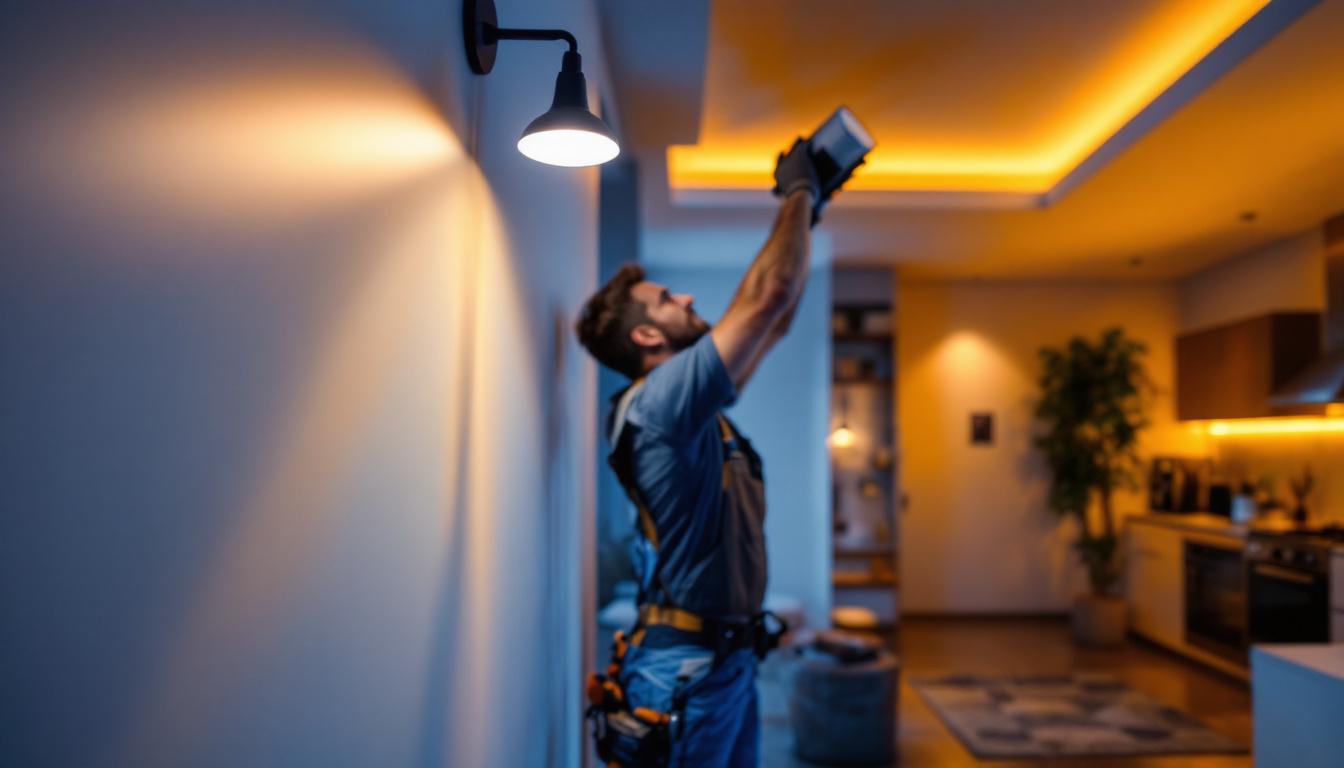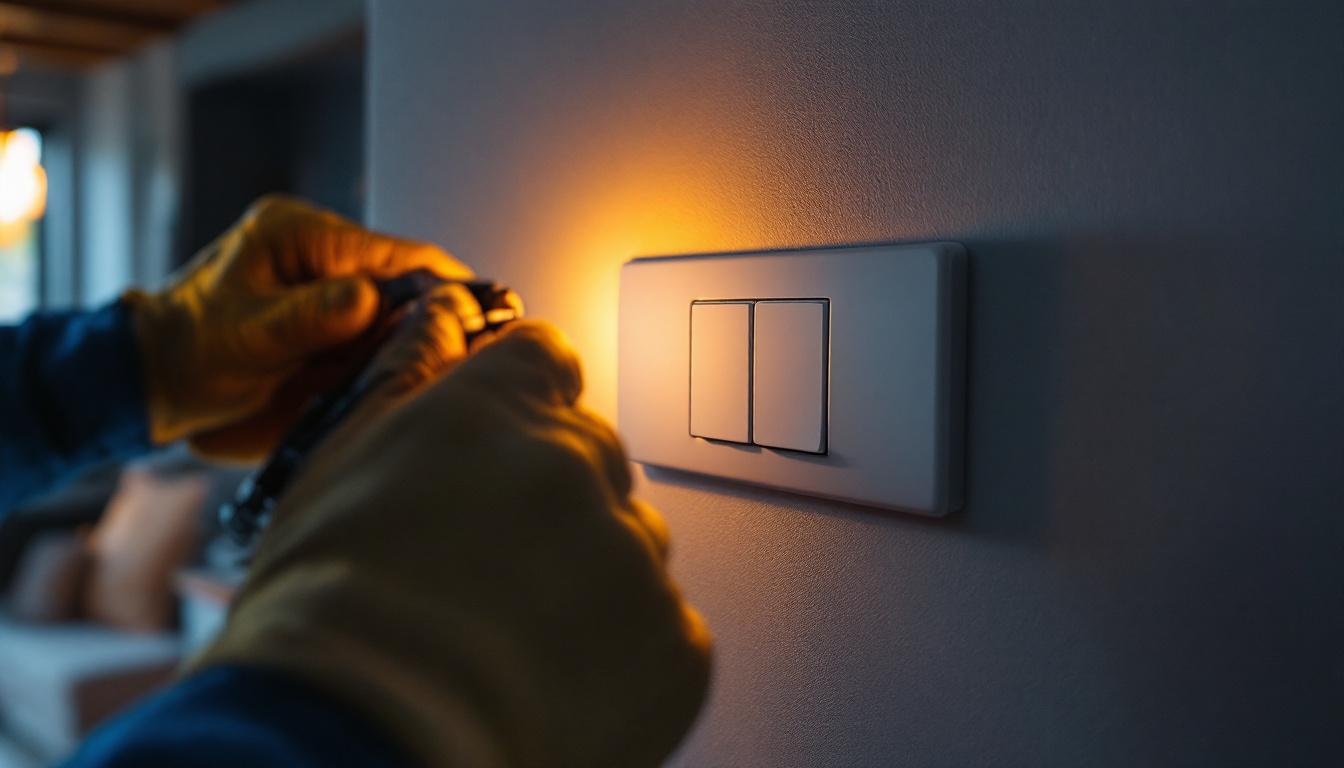
In the ever-evolving world of lighting design and installation, contractors face a myriad of challenges and opportunities. The right tools, knowledge, and resources are essential for success in this competitive field. This article delves into the essentials that every lighting contractor should consider to maximize their effectiveness and efficiency on the job.
As technology advances, so does the landscape of lighting solutions. Understanding the various types of lighting technology is crucial for contractors who wish to stay ahead of the curve.
LED lighting has revolutionized the industry, offering energy efficiency and longevity that traditional incandescent and fluorescent bulbs cannot match. Contractors must be well-versed in the benefits of LED technology, including lower energy consumption, reduced heat output, and longer lifespan. This knowledge not only aids in making informed recommendations to clients but also enhances the contractor’s reputation as a knowledgeable professional.
Moreover, understanding the different types of LED fixtures available—such as recessed, track, and pendant lighting—can help contractors tailor their solutions to meet specific client needs. Each type has unique characteristics and applications, and being able to provide expert advice on these options can set a contractor apart from the competition. For instance, recessed lighting is ideal for creating a clean, modern look in residential spaces, while track lighting offers flexibility in directing light to highlight artwork or architectural features. Additionally, pendant lights can add a decorative touch to dining areas or kitchens, making them not only functional but also a focal point in interior design.
With the rise of smart home technology, lighting contractors must also familiarize themselves with smart lighting solutions. These systems allow users to control their lighting through smartphones, voice assistants, or automated schedules. Knowledge of platforms like Zigbee, Z-Wave, and Wi-Fi-based systems is essential for integrating smart lighting into residential or commercial projects.
Contractors should also be aware of the potential for energy savings and convenience that smart lighting offers. By promoting these benefits to clients, contractors can enhance the value of their services and encourage the adoption of modern lighting solutions. Furthermore, smart lighting systems often come with features such as dimming capabilities, color temperature adjustments, and even mood-setting scenes that can significantly enhance the ambiance of a space. Understanding how to leverage these features can help contractors create tailored lighting experiences that meet the specific desires of their clients, ultimately leading to greater satisfaction and repeat business.
Having the right tools at hand is fundamental for any lighting contractor. The efficiency and quality of work can significantly depend on the equipment used. A well-equipped contractor can tackle a variety of projects with confidence, ensuring that each job is completed to the highest standards.
Every contractor should have a well-stocked toolkit that includes essential hand tools such as screwdrivers, pliers, wire cutters, and a multimeter. These tools are vital for installing and troubleshooting lighting fixtures. A good quality multimeter, for instance, can help diagnose electrical issues, ensuring that installations are safe and compliant with local codes. Additionally, having a reliable flashlight or headlamp can be invaluable when working in dimly lit areas or during nighttime installations. Proper lighting for the contractor is just as important as the lighting being installed.
Moreover, it’s beneficial to include a variety of screwdrivers, such as Phillips and flathead, in different sizes to accommodate various fixtures. A set of adjustable wrenches can also be handy for securing mounting brackets and other components. Keeping a compact utility knife in your toolkit can aid in stripping wires and opening packages, making it a versatile addition. Regular maintenance of these tools is crucial; keeping them clean and in good working order can extend their lifespan and ensure optimal performance on the job site.
Beyond basic tools, specialized equipment can enhance a contractor’s efficiency. For example, laser distance measurers can provide accurate measurements for installations, reducing the likelihood of errors. Furthermore, cable testers and circuit analyzers are essential for ensuring that electrical systems are functioning correctly before and after installation. These tools not only save time but also help in diagnosing potential issues that could arise during or after the installation process.
Investing in quality tools not only improves work quality but also boosts productivity. Contractors should regularly assess their tool inventory and upgrade as necessary to keep pace with industry standards. In addition to the tools mentioned, having a portable workbench can provide a stable surface for assembling fixtures and conducting repairs. A good set of safety gear, including gloves and goggles, is equally important to protect against potential hazards on the job. Furthermore, staying updated with the latest advancements in lighting technology can help contractors choose the best tools and equipment for their specific needs, ultimately leading to more successful projects and satisfied clients.
Safety and compliance are paramount in the lighting industry. Contractors must be aware of local building codes and safety regulations to ensure that their work meets legal standards.
Each locality may have specific codes governing electrical installations, including lighting. Familiarity with these regulations is essential to avoid costly fines and ensure the safety of the installations. Contractors should regularly review local codes and attend workshops or training sessions to stay informed about any changes.
Moreover, understanding the National Electrical Code (NEC) can provide a solid foundation for compliance. The NEC outlines safety standards for electrical wiring and equipment, and adherence to these guidelines is critical for any contractor working in the field.
Safety practices should be ingrained in every contractor’s work ethic. This includes wearing appropriate personal protective equipment (PPE), such as gloves, safety glasses, and hard hats, especially when working in hazardous environments. Additionally, contractors should conduct thorough risk assessments before starting any project to identify potential hazards.
Training staff on safety protocols and emergency procedures can further enhance workplace safety. Regular safety meetings can help reinforce these practices and ensure that all team members are on the same page.
Effective communication and relationship management are vital for lighting contractors. Building strong relationships with clients can lead to repeat business and referrals, which are essential for long-term success.
From the initial consultation to project completion, setting clear expectations with clients is crucial. This includes discussing project timelines, budget constraints, and design preferences. By being transparent about what clients can expect, contractors can minimize misunderstandings and foster trust.
Regular updates throughout the project can also enhance client satisfaction. Keeping clients informed about progress and any potential delays demonstrates professionalism and commitment to quality service.
Feedback, both positive and negative, is an essential part of the contractor-client relationship. Contractors should be open to receiving feedback and willing to address any concerns that may arise during a project. This responsiveness not only helps resolve issues quickly but also shows clients that their opinions are valued.
Encouraging clients to provide reviews and testimonials can also bolster a contractor’s reputation. Positive feedback can be showcased on websites and marketing materials, further attracting new clients.
In a competitive market, effective marketing strategies are crucial for lighting contractors. Establishing a strong online presence and utilizing various marketing channels can significantly enhance visibility and attract new clients.
A professional website is a fundamental tool for any contractor. It should showcase previous projects, client testimonials, and a clear outline of services offered. Including a blog can also help establish the contractor as an authority in the lighting industry, providing valuable information to potential clients.
Additionally, leveraging social media platforms can enhance visibility and engagement. Sharing project photos, tips, and industry news can help build a community around the brand and attract potential clients.
Networking with other professionals in the construction and design industries can open doors to new opportunities. Building relationships with architects, interior designers, and general contractors can lead to referrals and collaborative projects.
Participating in industry events, trade shows, and local business organizations can also help contractors expand their network. These connections can be invaluable for staying informed about industry trends and potential project leads.
The lighting industry is constantly evolving, making ongoing education essential for contractors. Staying informed about the latest trends and technologies can provide a competitive edge.
Participating in workshops and pursuing relevant certifications can enhance a contractor’s skill set. Many organizations offer training programs that cover new technologies, installation techniques, and safety practices. These educational opportunities can also provide networking benefits, connecting contractors with industry experts and peers.
Certifications from recognized organizations can enhance credibility and demonstrate a commitment to professionalism. Clients often feel more confident working with contractors who have proven expertise and qualifications.
Keeping an eye on industry trends is vital for contractors looking to innovate and offer cutting-edge solutions. This includes staying informed about advancements in energy-efficient lighting, smart home technology, and sustainable practices. Engaging with industry publications, attending trade shows, and participating in online forums can help contractors stay ahead of the curve.
By embracing new trends and technologies, contractors can offer clients the latest solutions, positioning themselves as forward-thinking professionals in the lighting industry.
Lighting contractors play a crucial role in shaping the environments where people live and work. By mastering the essentials outlined in this article, contractors can enhance their skills, improve client satisfaction, and ultimately achieve greater success in their careers.
From understanding lighting technology and investing in the right tools to prioritizing safety and effective communication, each aspect contributes to a contractor’s overall effectiveness. As the industry continues to evolve, a commitment to ongoing education and adaptation will ensure that contractors remain competitive and capable of meeting the diverse needs of their clients.
In a world where lighting is not just functional but also an integral part of design, lighting contractors have the unique opportunity to illuminate spaces in ways that enhance both aesthetics and functionality. Embracing these essentials will pave the way for a brighter future in the lighting industry.
Ready to elevate your lighting game? At LumenWholesale, we provide lighting contractors like you with the highest quality, spec-grade lighting products at prices that can’t be beaten. Say goodbye to local distributor markups and hello to a vast selection of reliable lighting that meets rigorous industry standards. With free shipping on bulk orders, you can stock up on superior lighting solutions without worrying about hidden fees. Don’t compromise on quality or cost—visit LumenWholesale today for the best value in wholesale lighting.

Discover how LED light kits can transform your lighting solutions with energy efficiency, versatility, and enhanced ambiance.

Discover the best practices and innovative techniques for lighting contractors with Elite Can Lights.

Discover the best solar post light options to maximize profitability in lighting installations.

Discover expert tips on mastering three rocker switches for lighting contractors.